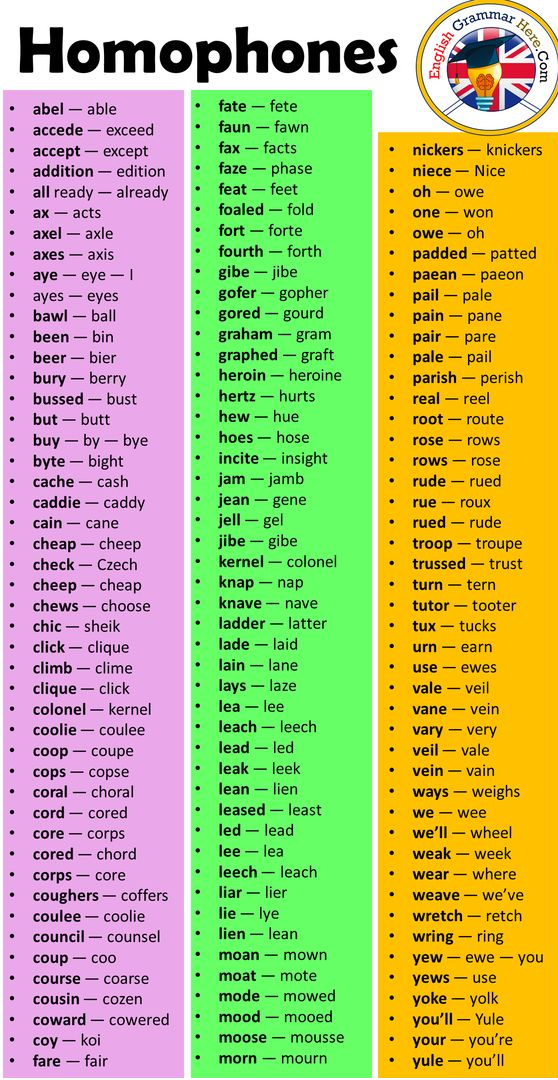Homophones describes one of two or more words with the same pronunciation but different spellings and/or meanings (for example weak and week). English learners will sooner or later face homophones, so it's essential for the EFL teacher to be aware of homophones and how to teach them.

What are Homophones?
Homophones are words that have exactly the same sound (pronunciation) but different meanings and (usually) spelling. For example, the following two words have the same sound, but different meanings and spelling: hour (noun: 60 minutes) / our (possessive adjective: belonging to us)
In the next example, the two words have the same sound and spelling, but different meanings: bear (noun: large, heavy animal with thick fur) bear (verb: tolerate, endure)
Oftentimes, homophones are in groups of two (our & hour), but occasionally they can be in groups of three (to, too, two) or even more. If we take our bear example, we can add another word to the group: bear (noun: large, heavy animal with thick fur) bear (verb: tolerate, endure) bare (adjective: naked, without clothes)
Are you interested in teaching English as a foreign language?
Get your TEFL certification with ITTT.
Register now & get certified to teach english abroad!


